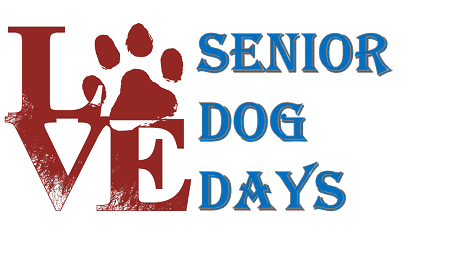Some content may contain affiliate links to products which means we could earn a fee on your purchase. Thank you for visiting
There a few usual suspects for why your senior dog is so clingy or suddenly following you around. In this article we’re going to explore the top 5 and help you get to the bottom of this new behavior.
But first, to answer your question:
The #1 reason why your senior dog is so clingy is because they are trying to tell you something having to do with:
- Deteriorating Vision or Hearing
- Noises and Vibrations
- Heightened or Weakened Sense of Smell
- Separation Anxiety
- Change/Alliance
To really get to the bottom of why your senior dog is so clingy, continue reading and join me for a more in depth understanding
Why is my dog following me everywhere suddenly?
A dog that never used to be attached to your feet or on your lap is all of a sudden, very noticeably, always at your feet, side or lap. They follow you upstairs, downstairs, inside, outside, in the bathroom, down the hall and never used to. That’s clingy.
Why a dog might become extra clingy or needy lately
In most cases, “clingy” is an emotional response to your dog’s current circumstances. While your senior dog might be clingy for a physical reason, such as hearing loss (we’ll cover that first), it just as likely that she’s become clingy due to an environment related issue.
As with most senior dog issues, this will require a deeper look into what might be causing this worrisome, emotional behavior.
We’ll start with the most common physical reason because this would require a vet visit.
Senior Dog Declining Hearing or Vision
I know a lot of dogs who cannot hear very well and it doesn’t slow them down one bit. Even my own senior dog is going through hearing loss and is managing just fine.
However, your senior dog might be right in the early stages and your voice is beginning to sound different. Unable to recognize your voice, your senior dog stays close to you because your scent gives them the proof they need to know that it’s really you.
The same goes for changes in vision. Cataracts can cause blurry vision and other eye diseases can cause pain.
Vision problems that come on suddenly or progress quickly might cause a senior dog to lack confidence in low light environments.
If you’re dog’s sight is declining, they are likely to be afraid or lack confidence. Staying by your side makes them feel more secure.
If your senior dog being clingy remains persistent, it’s time to see your vet to rule out or start to take care of these newly developing physical conditions.
Your Senior Dog Hears or Feels Something Different
Maybe your senior dog’s hearing is perfectly fine. Perhaps his hearing is so good that he’s bothered by a new noise. To verify if this could be the problem, go to each room in your house and stop and LISTEN.
Is there a new sound or vibration coming from somewhere in the house or outside? Listen intently without distractions.
New appliances (or even failing old ones) can make new noises that scare a senior dog and make her clingy. Even a new clock or lamp can emit a new noise that your dog is not used to.
Dogs can hear light-bulbs and the hum of electric current. Did you buy new electronics or install home automation products?
Look outside your windows. Is there evidence of work crews? Is a neighboring home being remodeled during the workday?
Construction work with intermittent banging can be both felt and heard by your senior dog and it can absolutely lead to him being clingy.
Chances are good that your senior dog is stressed by your noisy new items and is looking to you for reassurance.
My dog senior dog gets clingy when someone in the house uses a stapler, opens a 3-ring binder or crinkles a plastic bottle….and that’s just to name a few.
If the clinginess can be traced to a new sound, your senior dog will adjust in time. If it’s something that’s going to be in the house permanently such as a new microwave or washing machine, consider a formal introduction with treats every time it beeps or squeaks.
Now, if you’ve stopped and listened to your home but still cannot hear anything and this doesn’t help solve why your senior dog is so clingy; think about your latest purchases. What have you most recently brought into the home and does it……smell?
Senior Dog Smells Trouble Brewing…or Not
So we know that dogs have a great sense of smell but how does that impact his daily life?
Imagine being able to close your eyes right now, have 10 people you’ve met over your lifetime enter the room where you’re sitting, and without opening your eyes or hearing them speak, you know exactly who is with you. You actually identify all 10 people by the way they smell.
Could you imagine how having that superpower would alter your everyday life? No thank you!
Your senior dog’s keen sense of smell is his lifeline. It is very possible that something in the house smells and your dog associates the scent with something that scares her or is extremely foreign.
Maybe you’ve been walking around the neighborhood and the scent of the neighborhood alpha bully is on your shoes, in your front hallway. Your senior dog might get clingy because they smell this threat and wonder where the heck that dog is hiding.
Perhaps a delivery person’s cologne is permeating a package and the unfamiliar scent is making her anxious.
Are you using scented plugins or new essential oils? Some are downright offensive or inhibit his ability to smell his surroundings and our senior dogs don’t know how to cope.
Unfamiliar scents or familiar scents associated with bad feelings can cause your senior dog (or any dog) to seek refuge at the feet of their loved ones.
Or not…Conversely, your senior dog could be losing her sense of smell. A dog’s nose is tasked with decoding thousands of messages per day.
Without being able to detect or interpret scents, your senior dog can become anxious and stressed. They are literally unable to decode their surroundings and cling to you in response.
Your Senior Dog Thinks You Might Be Taking Off
We humans know when we’re leaving town for a few days but our dogs are always on the lookout for the telltale signs of being separated.
Look around your home. Are you stockpiling boxes? Are you cleaning out closets? Did you leave out a piece of luggage? Decluttering? Packing up belongings for charity?
Even if you’re not going anywhere, these signs of departure help fan the flames of separation anxiety and can make your senior dog clingy.
Did a friend pop over who is normally associated with you leaving? I can tell you that my senior dog Frodo is way too clingy after our pet-sitting friend John visits.
Frodo associates John with us leaving and therefore every visit with John results in a couple of days of him being underfoot.
Your Senior Dog is Stressed By a New Person, New Thing or a New You
These are some of these easiest problems to identify because they are pretty obvious once it’s brought to our attention.
New people, new objects or new personality traits in YOU can cause a significant emotional response in our senior dogs.
For instance, a new person in the home (significant other, elderly, children, visitors) may not give your senior dog the same lovey vibes they’re used to and they get clingy with you.
Alternatively, they are alarmed by YOUR new vibe when this new person is around.
By this point, you and your senior dog know each other like the back of your hands and paws. If there is someone or something that is agitating you, your dog may stay near you as a symbol of alliance. They are on your side and remain close by to literally prove it and to stay in tune with your energy.
Another stressful situation for senior dogs is change. It can be as simple as the new Christmas tree in the corner or maybe you’ve recently re-arranged the living room or master bedroom where you sleep.
To a dog, altering the home is probably an unwelcome change. Most senior dogs thrive with routine, eat, routine, nap, routine, routine, routine. Any changes to an aging dog’s routine could lead to stress or even senior dog sleep deprivation (link to article) which both could cause a clingy reaction.
In Summary
The answers to why your senior dog is clingy could be right under your nose.
Remember: First, rule out a medical issue such as hearing or vision loss. After, it’s time to check out your surroundings.
It’s easy to think that nothing at all has changed, but with a nose like theirs, change is happening every single time something or someone enters the home.
If it’s not obvious, then you’ll need to do some thinking.
Sit down and go through everything that was happening when you first noticed your senior dog becoming clingy. Go into each of your living spaces and observe.
Look hard, think hard and do your best to connect the dots.
Thanks for visiting Senior Dog Days!

